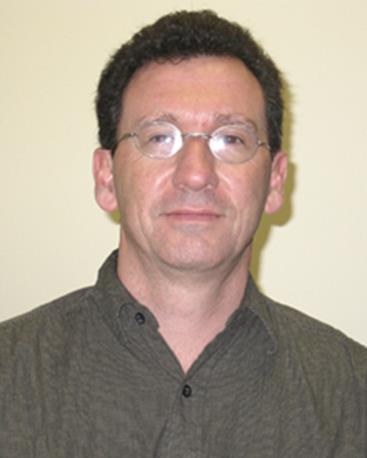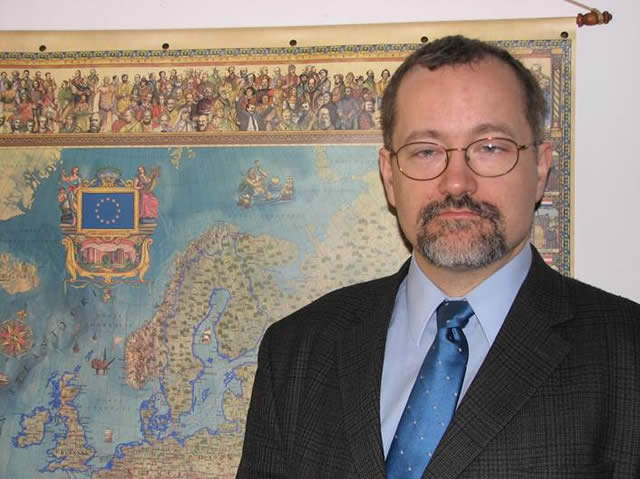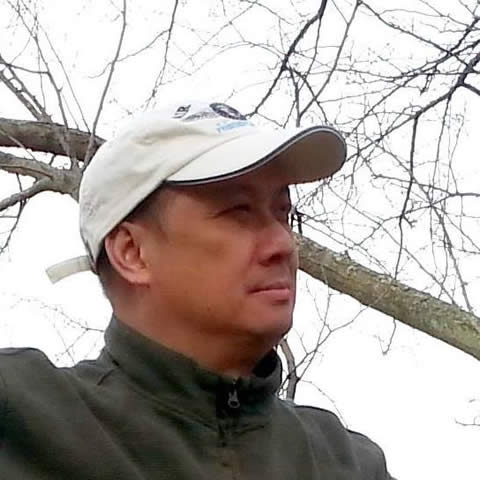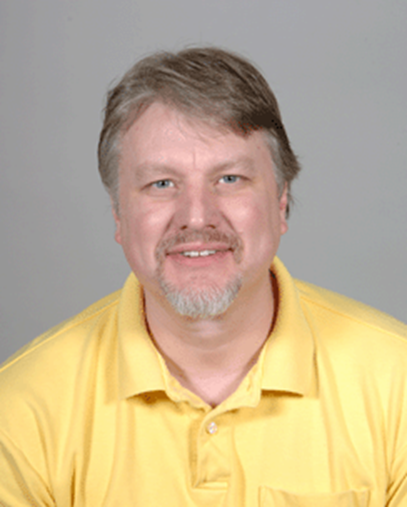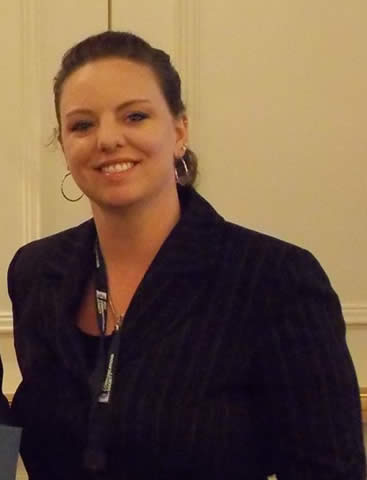|
THE SCIENCE OF CONSCIOUSNESS April 25-30, 2016 - Tucson Pre-Conference Workshop Monday, April 25, 2 pm to 6 pm
Designing a Conscious Robot The team approaches robotic consciousness from a computational perspective and beyond. Christian Lebiere will address robotic autonomy in terms of metacognition, an oversight function on normal cognition. Metacognition can be precisely embodied computationally, and provide performance advantages. Peter Boltuc will discuss biologically inspired cognitive architectures, which may allow for a naturalistic account of first-person non-reductive consciousness. Troy Kelley and Kristin Schaefer will discuss apparently counter-productive aspects in conscious human behavior, and whether they can be avoided in conscious robots. Ron Loui will talk about how AI is doing with respect to sympathy, agency, intention, meta-cognition, self-criticism, self-awareness, anthropomorphic embedding, personality, dreaming, prosthetic sentience, and what it is like to be Steph Curry.
Cognition, Emotions and Metacognition – Necessary and Sufficient for Robot Consciousness?
Participants: Christian Lebiere, Peter (Piotr) Boltuc, Ron Loui, Troy Kelley, Kristin Schaefer
Christian Lebiere Peter (Piotr) Boltuc, Ph.D. Ron P. Loui Troy D. Kelley Kristin Schaefer Christian Lebiere is a Research Faculty in the Psychology Department at Carnegie Mellon University. He received his B.S. in Computer Science from the University of Liege (Belgium) and his M.S. and Ph.D. from the School of Computer Science at Carnegie Mellon University. During his graduate career, he studied connectionist models and algorithms and was the co-developer of the widely used Cascade-Correlation neural network learning algorithm. Since 1991, he has worked on the development of the ACT-R hybrid cognitive architecture and was co-author with John R. Anderson of the 1998 book The Atomic Components of Thought. His main research interests are cognitive architectures and their applications to psychology, artificial intelligence, human-computer interaction, decision-making, intelligent agents, cognitive robotics and neuromorphic engineering.
Peter Boltuc is the Louise Hartman Schewe and Karl Schewe Professor of Liberal Arts and Sciences, Professor of Philosophy, University of Illinois Springfield. Visiting fellow, ANU June-Sept 2014; Visiting fellow, Christchurch Aug. 2014. Fulbright Fellow, Princeton, Jan 1991-Jan 1992. SCR Member, St.John’s, Oxford June-Jul. 1988. Two Ph.D.s: 1. philosophy of mind: The problem of Subject and Object in Anglo-American Philosophy: A Post-Strawsonian Approach (Warsaw University); 2. moral theory: The Ethics of Special Obligations (BGSU). Visiting professor Poznan University 2014 (UAM), Ph.D. seminar on consciousness; Jagiellonian University 2007, M.A seminar in philosophy of mind; Warsaw School of Economics, research professor, 2003-present. Formulated The Engineering Thesis in Machine Consciousness, the idea that non-reductive materialism nearly entails the view that first-person consciousness can be engineered in robots [Boltuc 2013, 2012, 2011, 2010, 2009; Boltuc and Boltuc 2007]. Presented the Church-Turing Lover, an argument that even if h-consciousness is epiphenomenal it does not have to make it irrelevant [Boltuc 2010]. Analyzed ways for a deflationary theory of consciousness to void epiphenomenalism [Boltuc 2010A]. Currently working on a deflationary theory of non-reductive consciousness and philosophy of BICA.
Ronald P. Loui was educated at Harvard, U Rochester, and Stanford, in Applied Mathematics/Decision and Control, Computer Science, and Philosophy. He was a tenured professor at Washington University in St. Louis before working on an AFRL/IARDA/SAIC project that derived from DARPA's TIA, collaborating with the NSA. He also consulted on projects at the Cleveland Clinic and Cycorp before returning to academia at U Illinois SPI. His papers have appeared in Cognitive Science, J of Philosophy, Theory and Decision, Artificial Intelligence, Computational Intelligence, Minds and Machines, AI and Law, Uncertainty in AI, IEEE Computer, CACM, and Computing Surveys. Chapters have appeared in Philosophy and AI, The Robot's Dilemma, AI and Virtual Reality, Probability and Inference, Deontic Defeasible Logic, and the MIT Encyclopedia on Cognitive Science. His current work includes drone and cyber weapon philosophy and policy. http://uisacad5.uis.edu/~rloui2/rontreephoto.jpg RPL will talk about How AI is doing w.r.t. sympathy, agency, intention, meta-cognition, self-criticism, self-awareness, anthropomorphic embedding, personality, dreaming, prosthetic sentience, and what it is like to be Stephen Curry.
Troy D. Kelley is the leader of the Cognitive Robotics Team and is an Engineering Psychologist at U.S. Army Research Laboratory Aberdeen Proving Ground, MD where he has worked for 25 years. Mr. Kelley received his Master’s degree from Radford University in Industrial Organizational Psychology in 1988 and another Master’s Degree from George Mason University in Applied Human Factors and Cognitive Psychology in 1999. His primary research interests include visual cognition, object recognition, cognitive robotics and computational models of cognition. He has developed the Symbolic and Sub-symbolic Robotics Intelligence Control System (SS-RICS) that is a cognitively inspired robotics control architecture. He has authored or co-authored over forty technical publications, proceedings, and journal articles. He was also served as the co-chair of the Behavior Representation in Modeling and Simulation (BRIMS) conference from 2005 to 2007.
Kristin E. Schaefer is an ORAU Postdoctoral Fellow with U.S. Army Research Laboratory, Aberdeen Proving Ground, MD. She earned her M.S. and Ph.D. in the area of Modeling & Simulation from the University of Central Florida, Orlando, Florida, and a B.A. in Psychology from Susquehanna University, Selinsgrove, Pennsylvania. Her primary research efforts are in the area of human-robot interaction, with a specific focus on situation awareness and trust. Dr. Schaefer also currently serves as the General Chair for the IEEE Cognitive Methods in Situation Awareness and Decision Support (CogSIMA) conference and Vice Chair for the Technical Subcommittee on Situation Management, Emerging Technologies.
|
|
|||||||||||||
